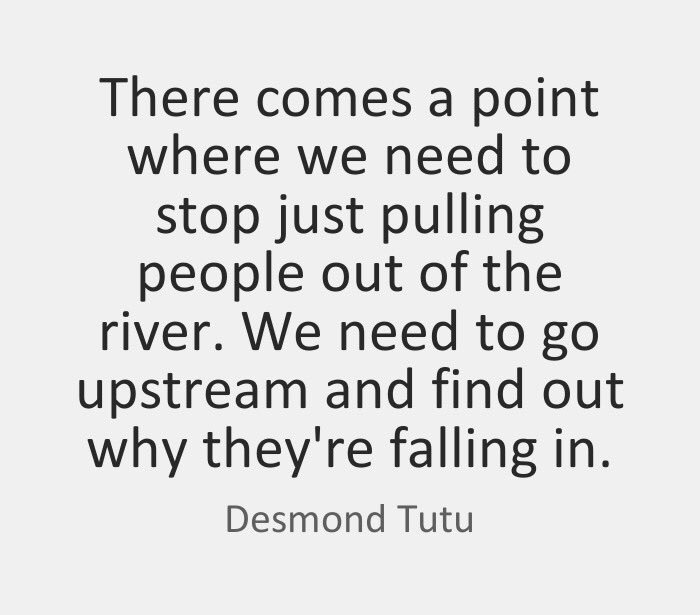
I am not someone who just accepts the status quo and goes along with things. I am a thinker and a questioner and although I am not loud or pushy, I certainly have opinions and things to say. (I realise I am probably hard work to manage for this reason!) I ask “Why?” a lot, and right now, that question is screaming loudly in my mind around two particular educational issues. One is children’s behaviour and the other is the curriculum/SATs.
Obviously, children should behave themselves in school. It’s extremely frustrating trying to teach a class who are all talking at once, or who can’t co-operate, or be kind to each other. It’s demoralising for you and creates a bad social and learning environment for them.
However, in managing children’s behaviour, we must dig deep enough to ask about the approaches we use, because no approach is value-neutral. Exactly what are we shaping our children towards? Is it compliance to an external set of rules, or is it understanding social co-operation and developing their own self-regulation skills?
Very tight behaviour structures look great in the short term. They make you look good because your class is silent. Arms are folded, backs are straight and instructions are automatically followed to the letter. But my worry is, what happens when those structures are taken away? What happens in a less structured environment like a school trip, or the playground? What happens when the children have a different teacher, or when they leave the school? What happens in a safeguarding situation where an adult should not be obeyed? Have these children learned to be independent, to manage themselves and their own behaviour? Have they learned that sometimes you are allowed to say no, and should be respected when you do? When you’re teaching independence, self-regulation and self-respect, things can get a little messy because children (and adults) will make mistakes. But if you never allow any room for mistakes, you will never allow any room for learning either.
Secondly, I often hear that we must be rigid with children’s behaviour, because we can’t possibly miss two minutes of learning time. Again, I have to ask, why? Clearly, no one wants the frustration of having to spend the first half hour of every afternoon sorting out lunchtime issues, we’ve all been there! But if taking two minutes to chat to a child about their interests, or reassure them about something, is going to impact so heavily on the curriculum, and therefore results, then perhaps it is the curriculum that is at fault.
The pressure of performing for SATs reverberates throughout the whole school as we try to cram more and more knowledge into children’s heads. We run booster groups and after school revision clubs. We endlessly blog and read and think and stress about how to get better results. It’s not surprising due to the high stakes nature of the tests. No one wants to lose their job over a bad set of data. But again, we must ask the question, what are we shaping our children towards? Is this the best we have to offer them? Why do we spend all our time and energy pulling them out of the river, as it were, instead of questioning what’s happening up stream?
We know that high stakes accountability measures are ineffective for judging the quality of schools and teaching. We know that they are next to meaningless for the children and that secondary schools and private schools pay little to no attention to the results. We know that they provoke huge anxiety and poor mental health in lots of children (and teachers). We know that they narrow the curriculum and kill off a love for writing.
It’s time for the collective voice of the profession to stand up and say no, this isn’t right and we’re not doing it any more, before many more of us vote with our feet.

25/02/2017 at 2:45 pm
Spot on.
LikeLiked by 1 person
25/02/2017 at 2:46 pm
Thank you.
LikeLike
25/02/2017 at 6:35 pm
I’m so very glad there are thinkers and questioners like you, Abby.
LikeLiked by 1 person
25/02/2017 at 6:37 pm
Thank you, Sue x
LikeLike
28/02/2017 at 10:52 am
I have left teaching now – the new primary SAT process seemed a good time to call a halt. I am not against assessment, testing, hard work, good behaviour (and yes definitely if it becomes thoughtful self-discipline) and have coped with all this as a parent and a teacher, but it is all about balance. Today things seem to be taken to extremes and the real point of education lost somewhere. You are right to question! But I fear that where in the past education attracted those who wanted to think, to evaluate, to make mistakes and try again, what appears to be most valued nowadays is conformity. It’s almost the current definition of professionalism. Not everyone of course. Good luck! There are even whole schools not doing SATs.
https://letthekidsbekids.wordpress.com/2017/02/26/this-message-outlines-lkbks-stance-for-action-before-may-2017/
LikeLike
05/03/2017 at 2:39 pm
It’s tricky times, to be sure! Thank you for stopping by to comment.
LikeLiked by 1 person